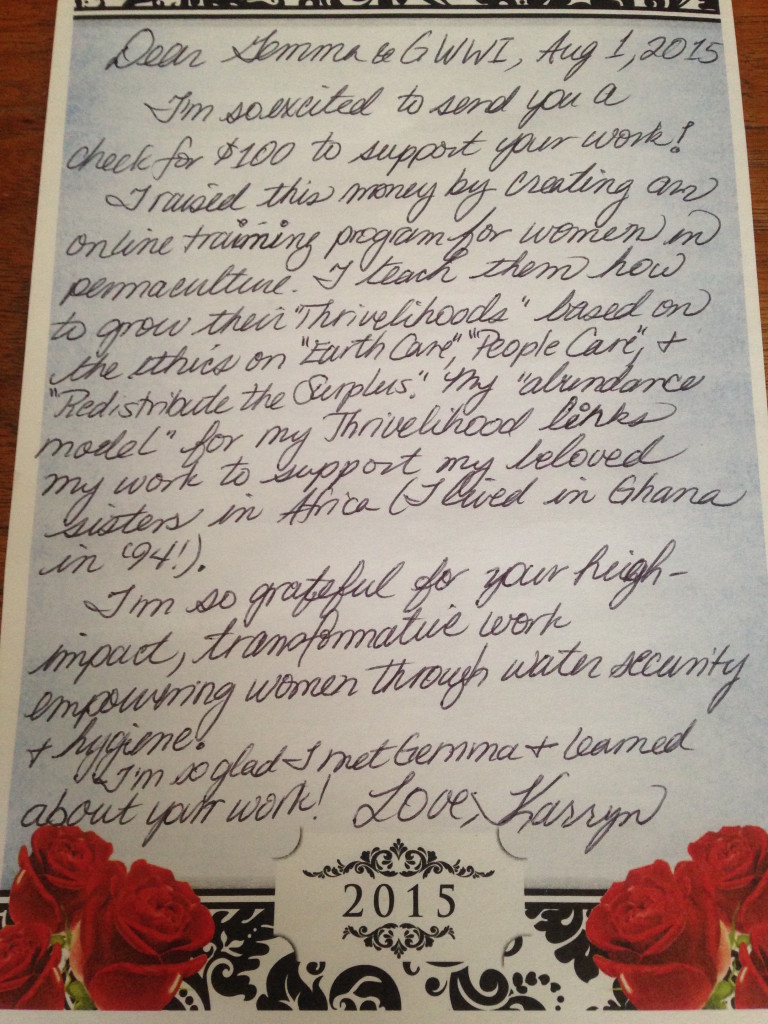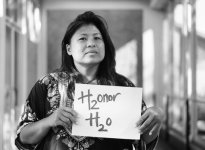 It’s Fall—harvest time in the northern hemisphere—and we are flooded with goodies from our gardens.
It’s Fall—harvest time in the northern hemisphere—and we are flooded with goodies from our gardens.
As permaculturists, there’s probably no more delightful feeling than nourishing our human Beloveds with the fruit of our humble work caring for the land—because we are in integrity with our People Care and Earth Care ethics. And it’s equally fulfilling to share our surplus produce with friends and neighbors—which brings up that third permaculture ethic…
It was presented as “Fair Share” when I first learned about permaculture—meaning we voluntarily limit our own consumption and reproduction so that we don’t take more than our fair share of resources. Realigning our lives with this ethic is a great start for people in the U.S., which is home to 5% of the world’s population but generates half the globe’’ solid waste and “ranks highest in most consumer categories by a considerable margin, even among industrial nations.”
Over the years, I’ve learned of two other complimentary and transformative versions of this ethic:
“Share the Surplus” is a mandate to design our systems so that they provide more than we need—so that we can give some of our yield to others—building our local resilience and gift economy. I gift you my extra green beans and you gift me some of your elderberry jam. Yum.
But local economies are about so much more than circulating stuff—a drive by dump of our zucchini burden, or even a detached drop off of our extra produce at a food shelter could end up feeling like and unnourishing replay of the donor/recipient binary.
Instead, when we cultivate mutually beneficial friendships with with people who might not otherwise have access to the resources we have in excess, the third ethic can demonstrate a clear commitment to social justice and be reframed as “Redistribute the Surplus.”
Now it’s one thing to do this when your permaculture venture is land-based, but a service-based permaculture Thrivelihood still needs to design the ethics at the core of its “abundance model”.
One way is to plan to “Redistribute the Surplus” is to gift a percentage of your profits to an organization that is doing awesome work!.
Here’s a letter I just sent The Global Women’s Water Initiative’s “Women and Water Training Programs” which equip grassroots women with the skills and tools for sustainable water solutions—which enable them to tackle the health and violence risks, as well as loss of income and educational opportunities, associated with the lack of safe water and sanitation in their own communities. Now THAT’s a leverage point!
 I met Gemma Bulos, the GWWI Director, at an Advanced Permaculture Training in 2009, and later had the pleasure of hosting her in my home, and she gave an knock-out presentation to my students at Ithaca College. I experienced Gemma’s dedication to women and water, and knew that GWWI was an organization I wanted to support, but at that time our young family didn’t have any extra money to donate.
I met Gemma Bulos, the GWWI Director, at an Advanced Permaculture Training in 2009, and later had the pleasure of hosting her in my home, and she gave an knock-out presentation to my students at Ithaca College. I experienced Gemma’s dedication to women and water, and knew that GWWI was an organization I wanted to support, but at that time our young family didn’t have any extra money to donate.
So, when I created my “Thrivelihood” services (described in the letter above), I linked my success to GWWI, pledging to donate a minimum of 5% of all of my profits to GWWI. Now that gets me out of bed in the morning! Because I know that if I thrive in my work, I can support an organization that I believe is a huge leverage point for women’s empowerment in the face of poverty and climate disruption. I look forward with delight to growing my support of GWWI.
 You can support GWWI too, and double your impact! GWWI has a matching donor who will match any donations until Sept 30!
You can support GWWI too, and double your impact! GWWI has a matching donor who will match any donations until Sept 30!
Gemma also shared her AMAZING story in my first Thrivelihood program!
You are invited to share in the comments below your answers to the these questions:
- How you are Redistributing the Surplus?
- How do you decide which organizations to support?
- How do you determine if they are key leverage points?
- How do you build and maintain mutually beneficial relationships with these organizations?
Want to hear more about Thrivelihoods? Use the contact form to sign up for updates.



